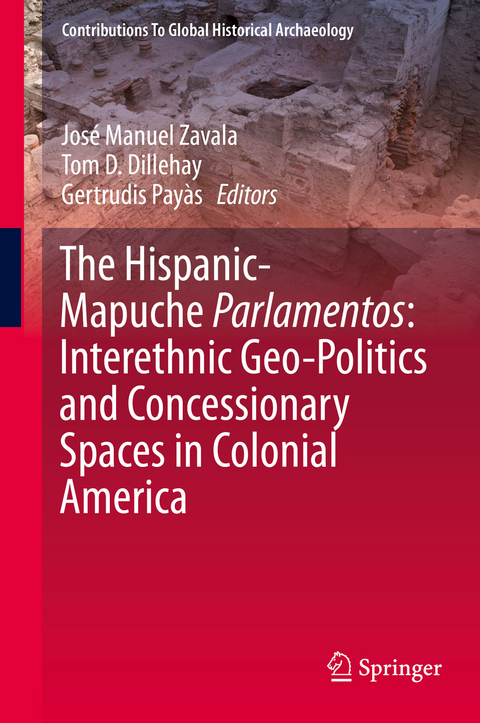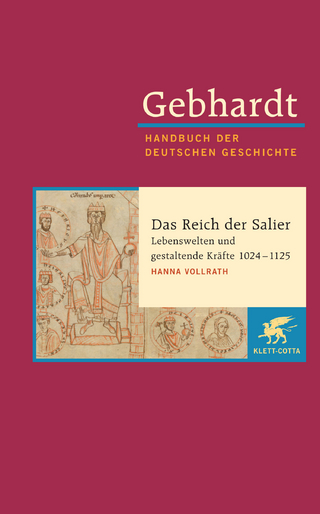
The Hispanic-Mapuche Parlamentos: Interethnic Geo-Politics and Concessionary Spaces in Colonial America
Springer International Publishing (Verlag)
978-3-030-23017-3 (ISBN)
Anthropological histories and historical geographies of colonialism both have examined the material and discursive processes of colonization and have identified the opportunities for different kinds of relationships to emerge between Europeans and the indigenous people they encountered and in different ways colonized. These studies have revealed complex, differentiated, colonializing and colonialized identities, shifting and ambiguous political relations, social pluralities, and mutating and distinctive modes of colonization.
This book focuses on the complementary historical, linguistic, and archaeological evidence for indigenous resistance and resilience in the specific form of parlamento political negotiations or attempted treaties between the Spanish Crown and the Araucanians in south-central Chile from the late 1600s to the early 1800s. Armed conflict, the rejection of most Spanish material culture, and the use of the indigenous Mapundungun language atparlamentos were obvious forms of Araucanian resistance.From a bigger picture, the book is based on an interdisciplinary perspective and asserts that historical archeology can provide better interpretations of past societies only if combined with other disciplines experienced by the treatment of existing data for historical periods, such as those provided by the written documents and which can be subjected to an anthropological, ethnohistorical, and linguistic reading by these disciplines. This creates tension because complementarity but also requires a questioning of the methods themselves as an offset look in order to include the other disciplinary perspectives.
José Manuel Zavala, PhD in anthropology from the University of the Sorbonne Nouvelle-Paris III, has specialized in the study of the relations between colonial societies and indigenous peoples, in particular the Mapuche people of Chile and Argentina. His works on the Hispano-Mapuche parliaments, developed in collaboration with the co-authors of this work, have reconsidered a way of understanding the colonial dynamics and the insertion of the indigenous societies in these. He is a member of the Department of Historical Sciences of the Faculty of Philosophy and Humanities of the University of Chile. He also has been professor-researcher of the Catholic University of Temuco and visiting professor of the Universities of Paris III and Rennes II, and is a member of international research teams in Chile, Spain and the United States.
Part I: Introduction.- CHAPTER 1: Origin of Parlamentos.- CHAPTER 2: Parlamentos 1593.- CHAPTER 3: Luis de Valdivia and Parlamentos.- CHAPTER 4: Parlamentos of the Eighteenth Century.- CHAPTER 5: The Late Colonial Parlamentos.- Part 2: Archaeology and Geography of Parlamentos.- CHAPTER 6: Problems of Research.- CHAPTER 7: Survey of Sites: Topography and Location.- CHAPTER 8: Description of the Excavated Sites and Artifacts.- Part 3: Language, Speech, and Mediation in the Parlamento.- CHAPTER 9: The name and the concept of "parlamento".- CHAPTER 10: Textual and Discursive Aspects of Parlamentos.- CHAPTER 11: Conclusions.
| Erscheinungsdatum | 22.09.2019 |
|---|---|
| Reihe/Serie | Contributions To Global Historical Archaeology |
| Zusatzinfo | X, 227 p. 21 illus., 18 illus. in color. |
| Verlagsort | Cham |
| Sprache | englisch |
| Maße | 155 x 235 mm |
| Gewicht | 484 g |
| Themenwelt | Geisteswissenschaften ► Archäologie |
| Geisteswissenschaften ► Geschichte ► Allgemeines / Lexika | |
| Geschichte ► Allgemeine Geschichte ► Altertum / Antike | |
| Geschichte ► Teilgebiete der Geschichte ► Wirtschaftsgeschichte | |
| Schlagworte | historical geographies of colonialism • historical, linguistic, and archaeological evidenc • historical, linguistic, and archaeological evidence • indigenous resistance and resilience • treaties between the Spanish Crown and Araucanians • use of Mapundungun language at "parlamentos" |
| ISBN-10 | 3-030-23017-1 / 3030230171 |
| ISBN-13 | 978-3-030-23017-3 / 9783030230173 |
| Zustand | Neuware |
| Haben Sie eine Frage zum Produkt? |
aus dem Bereich


